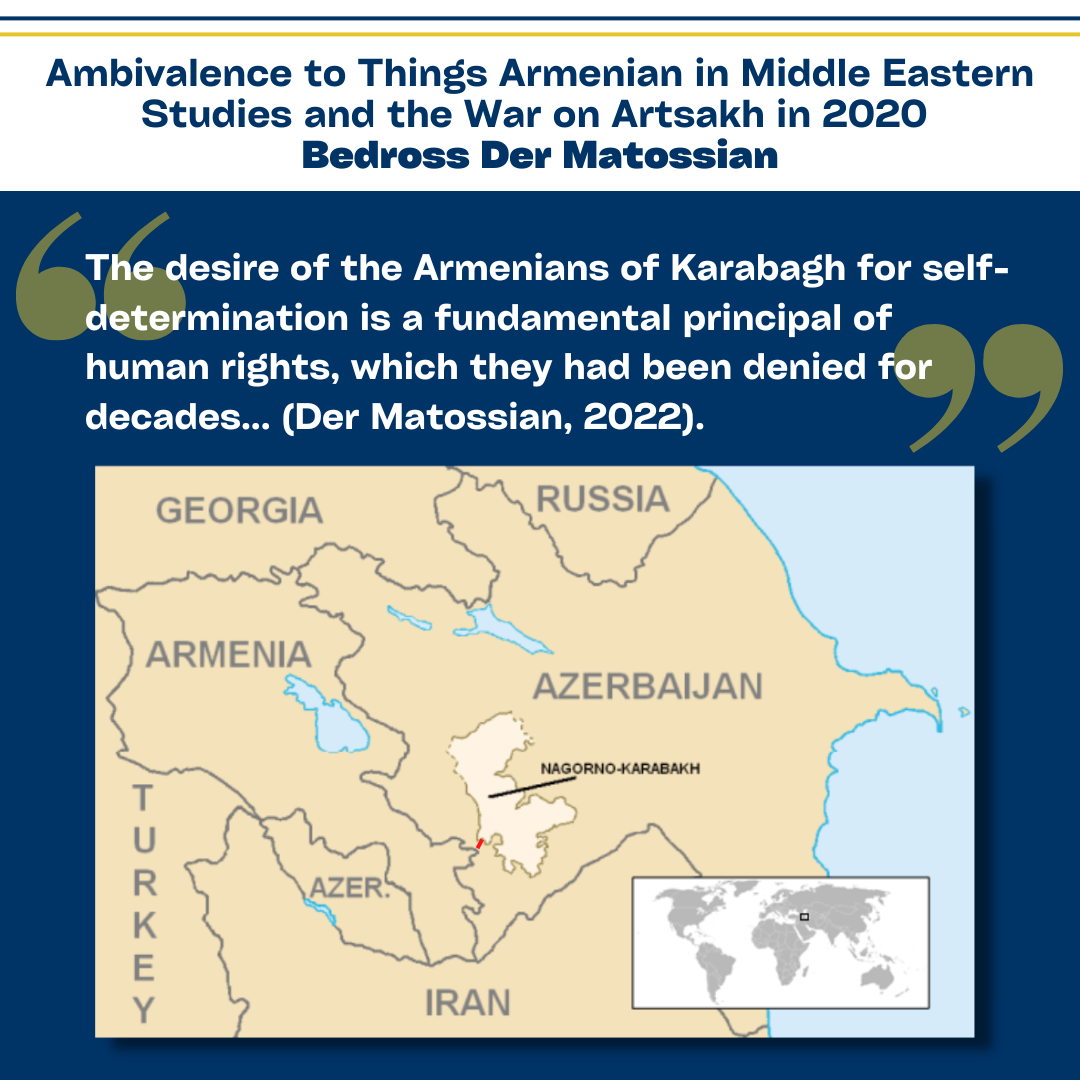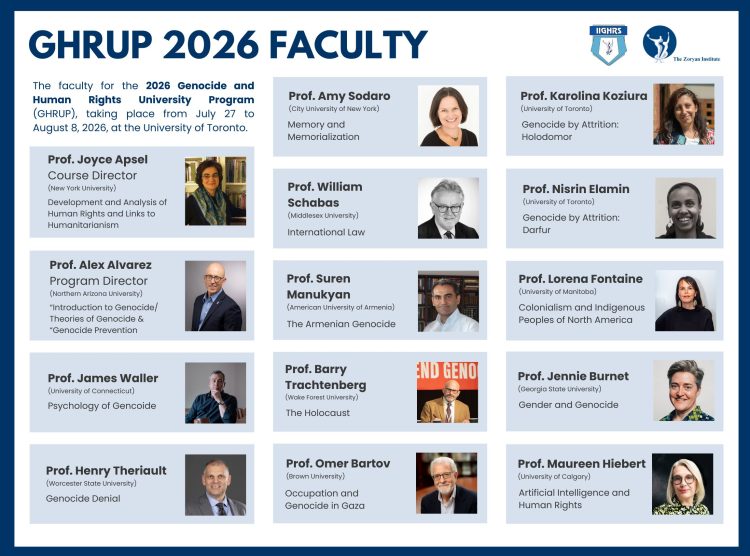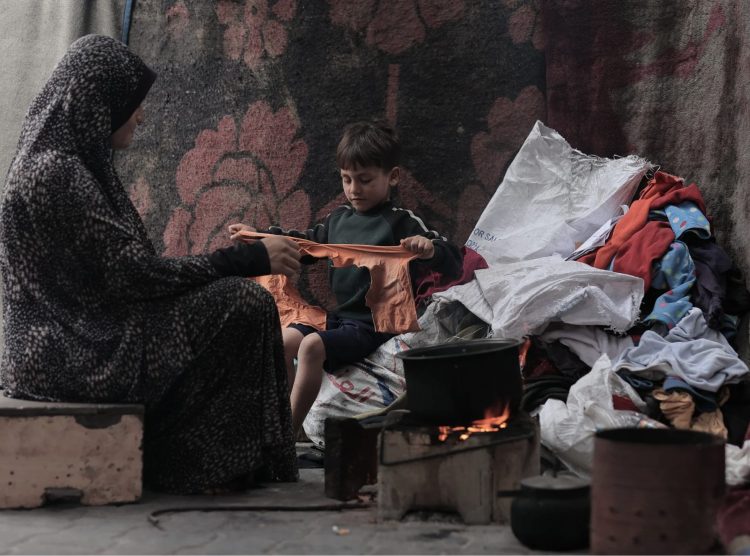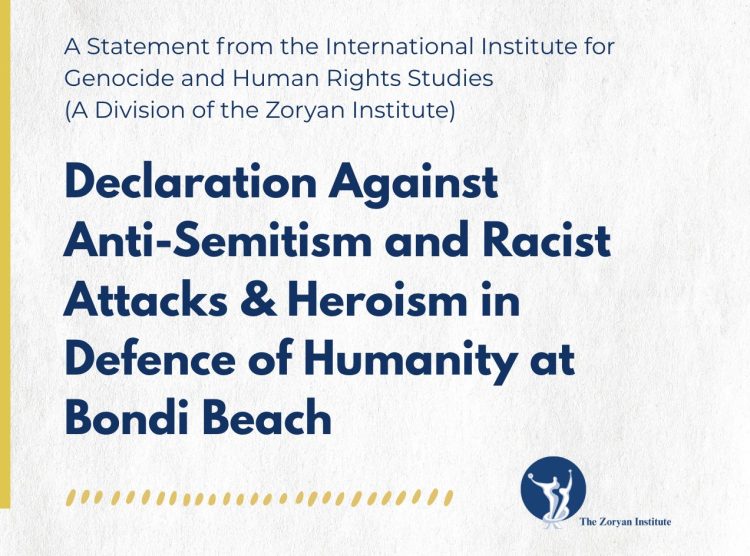In his article, Ambivalence to Things Armenian in Middle Eastern Studies and the War on Artsakh in 2020, published in the International Journal of Middle East Studies, Academic Board Member, Prof. Bedross Der Matossian, outlines a concise history of conflicts between Armenia and Azerbaijan that have led to the current, urgent circumstances.
Azerbaijan’s unprovoked war with Armenia has focused on the conflict in the once semi-autonomous region of Nagorno-Karabagh, which lies within the Azerbaijan borders, neighbouring Armenia. This region is historically part of Armenia, but was included within Azerbaijan borders by the Soviet government in pursuit of their Divide and Rule strategy that carried in numerous former Soviet Republics. Nagorno-Karabagh is populated by Armenian people, and there remains one corridor, the Lachin Corridor, that physically connects this region back to Armenia. Recently Azerbaijan has proceeded to block off this corridor, which considered the only lifeline for the citizens of Nagorno-Karabagh, to food, medicine, and other life sustaining necessities. It has been four days now that this passageway has been blocked, cutting off gas to the enclave, depriving children from going to school, and medical attention to the elderly and sick.
The actions of the Azerbaijan government demonstrates the intent to kill, in whole or in part, a group of people in a region of the country who are culturally, ethnically, and religiously different than the majority of the population of the nation. In accordance to Article 2 of the United Nations Genocide Convention, these actions could be considered an act of genocide against the Armenian people of Nagorno-Karabagh.
Der Matossian notes that after working to bring awareness to this conflict, many Armenian scholars:
“were shocked to witness the anti-Armenian rhetoric and pro-Azeri bias in the Western media. The desire of the Armenians of Karabagh for self-determination is a fundamental principal of human rights, which they had been denied for decades…” (Der Matossian, 2022)
In his paper, Der Matossian particularly calls attention to the silence of the international academic community and the absence of outcry and condemnation of the actions of Azerbaijan. We can see parallels to similar conflicts elsewhere, such as Ukraine, that receive public recognition and condemnation of blatant violations of the Declaration of Human Rights and the Genocide Convention, Self-Determination and Territorial Integrity, all ratified by international community through United Nations.
There should be no political considerations when defending truth, justice, and human rights. As it is said, all it takes for evil to win is good people to do nothing.
For more information, please read the article in full, linked here.





